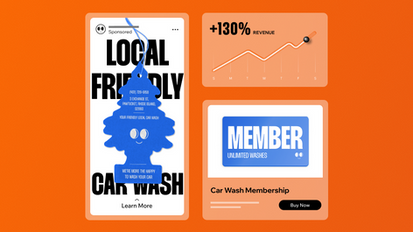Front Web Developer
What Is Front Web Developer?
Front Web Developer
In today’s world, there is a growing trend towards ethical consumerism, with more and more people looking for products that are cruelty-free and environmentally friendly. This trend has also extended to the world of e-commerce, with many online shoppers now seeking out websites that are certified as being “beast-free.” This term refers to websites that do not sell products that have been tested on animals or that contain animal-derived ingredients.

Front Web Developer Best Practices
Front Web Developer
No code web builders, also known as visual development platforms, are designed to simplify the website creation process by eliminating the need for coding. Instead of writing complex HTML, CSS, and JavaScript code, users can simply drag and drop pre-designed elements, such as text, images, buttons, and forms, onto a canvas to create their desired layout. This intuitive interface makes it easy for users to visualize their website structure and design in real-time, making it ideal for those who are not familiar with coding languages.
One of the key advantages of using a no code web builder is the time and cost savings it offers. Traditional web development projects can be time-consuming and expensive, as they often require hiring a professional web developer or designer to code the website from scratch. With a no code web builder, individuals and businesses can create a website in a fraction of the time and at a fraction of the cost. This makes it an ideal solution for small businesses, startups, and individuals who are looking to establish an online presence quickly and affordably.
Another major benefit of using a no code web builder is the flexibility and customization it offers. With a wide range of pre-designed templates, themes, and modules to choose from, users can easily create a unique and personalized website that reflects their brand identity and vision. Additionally, most no code web builders come equipped with advanced features, such as e-commerce integration, SEO optimization, and mobile responsiveness, allowing users to create a professional-looking website that meets their specific needs and goals.
Furthermore, no code web builders are designed to be user-friendly and accessible to individuals of all skill levels. Whether you are a complete beginner or an experienced web developer, you can easily navigate the platform and create a website that meets your requirements. Most no code web builders come with step-by-step tutorials, customer support, and community forums to assist users in building their websites effectively. This level of support and guidance ensures that users can create a high-quality website without feeling overwhelmed or intimidated by the process.
In addition to their ease of use and cost-effectiveness, no code web builders are also beneficial for maintaining and updating websites in the long run. Traditional websites built with custom code often require ongoing maintenance, updates, and bug fixes, which can be time-consuming and expensive. No code web builders simplify the maintenance process by providing users with intuitive tools for editing, updating, and adding new content to their websites. This eliminates the need for ongoing support from a professional developer, allowing users to manage and maintain their websites independently.
As the demand for easy-to-use website building tools continues to grow, the market for no code web builders has expanded rapidly in recent years. A wide range of platforms, such as Wix, Squarespace, Weebly, and WordPress, offer no code web building solutions that cater to different industries, business sizes, and budgets. Whether you are a small business owner looking to create a simple brochure website or an e-commerce entrepreneur in need of a robust online store, there is a no code web builder available to meet your needs.
1. Wix
Wix is a popular website builder that offers a user-friendly interface and a wide range of design templates to choose from. With Wix, small businesses can easily create a professional-looking website without any coding skills. The drag-and-drop editor makes it easy to customize your site to fit your brand and business needs. In addition, Wix offers a free plan that includes Wix branding and a subdomain, making it a great option for small businesses on a tight budget.
2. WordPress
WordPress is one of the most popular content management systems (CMS) in the world, powering millions of websites. While WordPress is known for its flexibility and customization options, it can be a bit intimidating for beginners. However, WordPress.com offers a free plan that allows users to create a basic website with limited customization options. For small businesses looking for more control and flexibility, WordPress.org is a better option, but it requires a hosting plan.
3. Weebly
Weebly is another user-friendly website builder that is perfect for small businesses. With Weebly, users can choose from a wide range of design templates and easily customize their website with drag-and-drop tools. Weebly also offers e-commerce features, making it a great option for small businesses looking to sell products online. While Weebly’s free plan includes Weebly branding and a subdomain, users can upgrade to a paid plan for more features and customization options.
4. Squarespace
Squarespace is a sleek and modern website builder that is perfect for small businesses looking to create a visually stunning website. With Squarespace, users can choose from a range of design templates and customize their site with a drag-and-drop editor. While Squarespace does not offer a free plan, they do offer a 14-day free trial, allowing users to test out the platform before committing to a paid plan.
5. Shopify
Shopify is a popular e-commerce platform that allows small businesses to create an online store. While Shopify is primarily geared towards e-commerce, they also offer a website builder that allows users to create a basic website for their business. With Shopify, users can choose from a range of design templates and customize their site with drag-and-drop tools. While Shopify does not offer a free plan, they do offer a 14-day free trial, allowing users to test out the platform before committing to a paid plan.

How Front Web Developer Works
Front Web Developer
In conclusion, when comparing web hosting providers, it’s important to consider factors such as uptime, performance, security, scalability, and customer support. By carefully evaluating your hosting needs and comparing different providers, you can find the best web hosting solution for your website. Whether you are looking for a budget-friendly shared hosting plan or a high-performance dedicated server, there are plenty of options available to suit your needs. Remember to do thorough research, read reviews, and reach out to customer support if you have any questions before making your decision.


